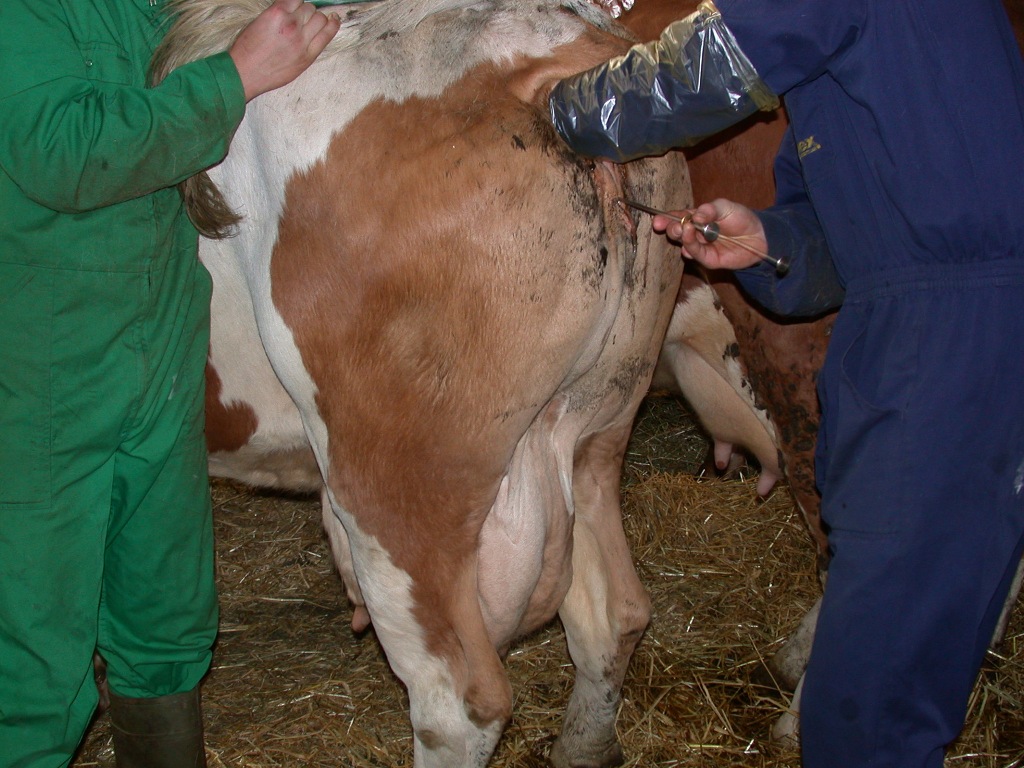
A dairy farmer who has been fed up with poor services from fake cow breeders has created an online marketing platform to connect other farmers with best breeders hence directly spurs their dairy production.
“Five years ago when I wanted to invest my savings in the diary business, I grappled so much with the market source and even conned for a breed that was not hybrid,” said Biko Kithenji.
A quick interaction with farmers later made him realize that there is a very big gap between the right information for markets and the real farmers doing the business.
Having endured a painful start into his project that is now thriving with over 15 dairy cows in Mweiga, Biko set his eyes in amending the status quo and the disconnect between the dairy breeders (farmers) and the market.
In order to champion this cause on his low budget, he settled on using the internet and initiating online marketing for breeders that is now paying off dividends with over 15 breeding farms under his custody. Internet penetration is on the rise and Biko was keen to tap in these rare opportunities.
He managed to create a marketing company, Green Field marketing Agency with a lot presence on social media for marketing purpose. As fate would have it, his efforts have started paying off with many of the digital farmers responding to his call to action.
RELATED ARTICLE: Dairy crossbreeding project targets 6000litres a cow yearly in milk yields
The strategy is working and confirms to be getting over five enquiries daily. On the other hand farmers who are doing breeding bushiness have steadily developed trust in him and given him the green light to help them source for the market which is always a thorny issue among many farmers.
He has over 15 breeding farms that have registered with him to market their animals. Once they have agreed with a specific breeding farm, Biko takes the details of the animals in question which include the type of breed, milk production capacity, disease resistance, feeding habits among others.
He also takes the pictures of the animals and sets off to do what he enjoys. According to him, the farmer pays nothing for the service. His fee is borne by the client who will be interested in the animals.
“Once a prospective client has appreciated the animal in question, I arrange the field visit and we visits the farm. The client then gives us a commission of Sh2000 which carters for my logistic costs. Once he has paid us our fee, they then negotiate with the farmer and at that stage we are not involved,” explained Biko.
RELATED ARTICLE: Dairy farmer riding on proper breeding for high and quality production
He believes that the farmer has the skills and pricing model of his animals and therefore they only link up the buyer to the right breeder.
The success he has attained through this process has seen him get inquiries from other farmers who are in dire need of his marketing services.
On a good day, Biko is able to raise over Sh6000.
“The breeding business is seasonal and most of the breeders have a specific period that they need my services. Once their animals are sold, they embark on breeding of more which may take about 6-12 months. Currently I have farmers from Ruiru, Kiambu, Kinangop, Nyeri and Murang’a.”
“I have got inquiries from farmers in Naivasha and have plans of expanding my area of work because I also get buyers from as far as Eldoret,” explained Biko.
The success in dairy animal marketing has made him think of diversifying into other ventures that include crops.
RELATED ARTICLE: Keen farmers may save 60 per cent livestock breeding losses
According to a report done by FAO on smallholder farmer market access, Markets continue to be seen as the means for ensuring that smallholder producers of agricultural products are effectively integrated into the mainstream of national economies, especially in developing countries.
For one thing, markets provide the opportunity for farm production to contribute to poverty reduction through the cash income realised from sales of farm produce. In turn, markets drive production as farmers strive to meet the demands of consumers and end-users in terms of quantity and quality. But their very existence, or how effectively they function, cannot be guaranteed in many developing countries.
Biko’s effort are therefore no aloof as his market sourcing idea is geared towards seeing these smallholders become more productive, more market-oriented and better connected to markets than before. Some categories of these smallholders, usually called emerging farmers, are more market oriented than others because they produce purposely for local, national or international markets.
















Comments powered by CComment